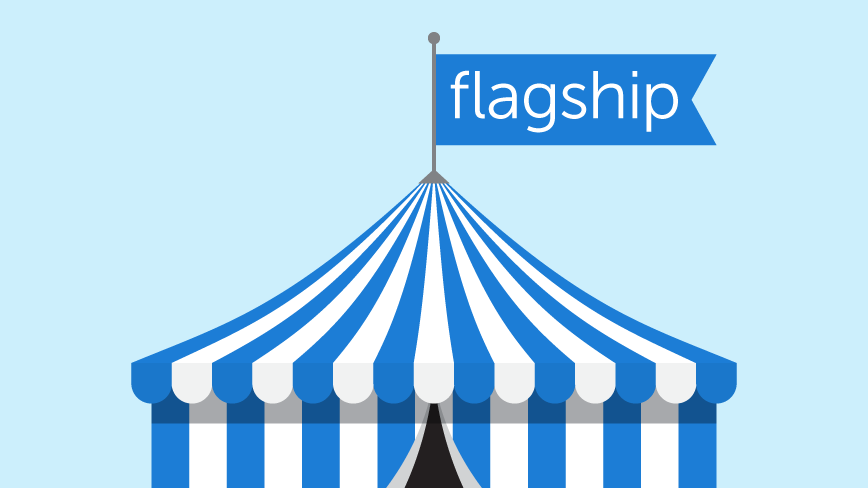Pop-up retail stores are an avant-garde approach to retail. Flashy, glamorous and fleeting, they make a branding impact that’s hard to recreate elsewhere.
Blink, and you might miss them: Pop-Up shops are a major force in the retail world and for reasons you might not expect. Most pop-ups aren’t concerned with generating revenue and don’t permanently expand a chain’s physical footprint. The attraction is in generating buzz around something temporary – and thus special.
People who were not warned of a pop-up’s tiny lifespan may bring puzzled friends along to witness nothing but a deserted location. “But it was just HERE!” the person might proclaim, peering into the dim, empty space through soaped windows.
This is exactly the sort of feeling brands hope to conjure when they plan a temporary retail location. Many are seasonal, with hundreds of pop-up stores emerging then dismantling for the holiday shopping blitz. Other times, they are ways for online-only brands to make a rare physical retail experience. No matter the intent, pop-up stores are all about glamour, intrigue and the allure of something that cannot be held onto forever.
Why Do Stores Pop-Up?
In light of recent pop-up store trends, like Target’s ambitious “Wonderland” installation in Manhattan’s trendy Chelsea district, it may be confusing why a brand would want a pop-up store in the first place. Many of these projects lose money by design and much of the effect they have is washed away once they close shop.
Pop-up stores aim to draw in shoppers by providing fleeting, elusive shopping experiences. In a world where all nine seasons of The X-Files are available on Netflix and umeboshi made in Japan’s famed Kishuu region can be readily bought online, something temporary (and special) can be hard to come by.
By contrast, pop-up stores demand instant attention. Anyone who wants the experience must do so immediately or risk missing out. Word-of-mouth tends to fuel the hype. “‘Pop-up’ is a loose term for a temporary setup that is done under the radar,” explains Yeekai Lim, owner of trendy L.A. coffee brand Cognoscenti Coffee. “It’s kind of a guerilla approach to serving the public without the conventional advertising and signage.”
With regards to consumers’ experiences with pop-up shops, we found that consumers find real value in pop-ups, as a result of their shopping experience. Over half feel that pop-ups are a great way to test products (57%) and learn more about a particular brand (55%). They also like that they can feel like an exclusive shopper (38%) and they like getting the inside scoop on trends through pop-ups (49%), according to a recent study we conducted.
A Strategy Emerges
While they may seem only concerned with glamour, pop-ups do serve practical purposes. Many of these locations, such as Chobani’s temporary spot in New York’s SoHo, serve as “test kitchens” for new concepts. Peter McGuinness calls the store an “incubation center” as well as “the most beautiful ad for Chobani.” Brands that don’t typically have retail spaces get to roll out flagship projects to attract new customers while redefining expectations for existing ones.
Warby Parker, an online retailer for boutique eyeglass frames, began experimenting with pop-ups in co-founder Dave Gilboa’s New York apartment. Later, they would open a series of pop-ups in SoHo around the holidays. Even though huge portions of their sales still occur online, the temporary stores represented an important lynchpin for branding. “There’s still something tangible that you can’t replace, when you’re walking into a store, engaging all five senses,” Gilboa intoned romantically to NPR.
Pop-up shops really enhance the shopping experience, specifically through brand/product discovery. 67% of consumers told us that pop-up shops are a great way to discover new brands/product/services, over half (55%) said it’s a great way to re-discover brands/product/services, and 53% said it actually helped them discover new product/services.
As more brands reassess how to connect with customers in novel ways, expect pop-up stores to be part of their solutions. Other brands may use them to test new products or ideas, including selling via physical retail locations. Also expect the continued role of boutique brand pop-ups as the ultimate measure of exclusivity.

